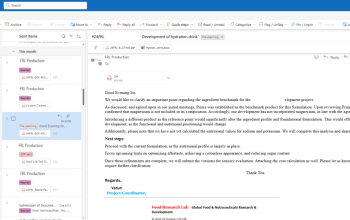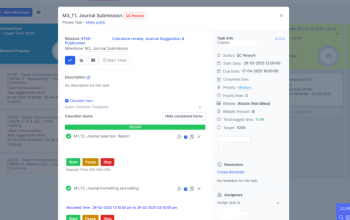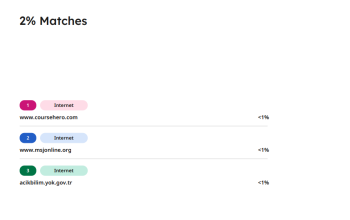Textual Analysis service for PhD research scholars
Qualitative Textual Analysis & PhD Mentoring Service
What is Qualitative Analysis?
Qualitative analysis in research is a methodological approach used to explore numerical data similar as interview reiterations, case studies, and textbook. It helps scholars uncover underpinning meanings, patterns, and themes within social and behavioural surrounds. Defined as “an array of illuminative ways which seek to describe, crack, restate, and come to terms with the meaning — not the frequence — of naturally being excellent, ” this approach aligns with the constructivist exploration paradigm. Scholars worldwide use qualitative data analysis styles similar as thematic analysis, content analysis, and predicated proposition to induce meaningful perceptivity. Data from semi-structured interviews, open- concluded checks, and field compliances are frequently enciphered into textbook and anatomized for common themes. Non-verbal data similar as images and vids also play a critical part in qualitative exploration styles.
Why is Qualitative Research Important for PhD Scholars?
PhD scholars generally use the case study approach and semi-structured interview fashion to collect detailed, environment-rich qualitative data. These styles support deep disquisition of exploration questions. The flexible structure of interviews allows for explanation and follow- up, performing in further dependable and perceptive responses.
Why Choose PhD Assistance for Qualitative Analysis?
At PhD backing, we give comprehensive qualitative data analysis services including tool development, rendering, theme identification, and professional interpretation of results. Our experts are complete in using technical software tools like NVivo, ATLAS.ti, MAXQDA, and Hyper RESEARCH for rendering qualitative data and pattern recognition.
Beyond analysis, we validate your findings through credibility checks similar as triangulation, peer reviews, member checking, and external checkups. This ensures your research stands up to academic scrutiny.
What sets us unique is our experts. While software helps with processing, only subject matter experts can apply contextual interpretation and align themes with being literature. To ensure rigor, we employ qualitative data confirmation ways similar as triangulation, member checking, peer debriefing, and external checkups — ensuring the credibility and trustability of qualitative findings.
Trusted by PhD Students from Top Universities
Our PhD methodology experts have expansive experience working with scholars across the UK, US, Australia, and other leading academic institutions. We concentrate on delivering a stress-free exploration experience and give substantiated mentoring. With strong planning, association, and donation chops, So, relax—your qualitative PhD research is in expert hands.
Our Guarantees – Premium qualitative analysis support
We ensure zero plagiarism in all theses, dissertations, or manuscripts that we provide. Documents are checked with Turnitin, WriteCheck, and other AI content discovery tools to guarantee your work is human-authored, research-driven, and institution integrity-check-worthy. We do not use AI-generated content—our work is 100% expert-authored and fully aligned with academic norms.
All our works are completely original crafted by experts on the domain such as
• Computer Science & AI
• Law & Public Policy
• Social Sciences
• Engineering
• Life Sciences
• Medicine & Clinical Research
• Management & Finance
• Philosophy & Humanities
Our area-specific experts such as industry researchers, university professors, and licenced physicians make sure the depth and accuracy of every project that we undertake.
We edit your research work based on your university’s guidelines for structure, word count limit, and citation format. Whether you are studying at IIMs, ox
Whether you’re studying at IITs, IIMs, Oxford, Harvard, Cambridge, NUS, or UGC-recognized institutions, we guarantee that your thesis meets all the academic and formatting standards required.
Our researchers use peer-reviewed journals and credible academic sources from:
• Scopus
• PubMed
• IEEE Xplore
• JSTOR
• Springer
• Elsevier
• ProQuest
• Web of Science
We ensure every reference is traceable, current, and cited accurately in the required referencing style (APA, MLA, Harvard, Chicago, Oxford, Vancouver, etc.).
Our team includes:
• Writers with years of experience on the domain
• Editors with knowledge of English grammar and domain expertise.
• Proofreaders trained in grammar and consistency.
We provide unlimited revisions to address your university feedback.
Whether it’s editing a literature review or methodology reworking or improving suggestions, and our team will work until the client satisfied.
We use the most recent versions of APA, MLA, Harvard, Chicago, and Vancouver citation styles. Our work is properly cited, bibliography and all, and in line with university codes on ethics. Tools for citation management employed are Mendeley, Zotero, and EndNote.
We offer biostatistics, econometrics, and data analytics services employing tools such as:
• STATA
• R
• AMOS
• NVivo
• MATLAB
• SPSS
We support you with data cleaning, sample size calculation, hypothesis testing, all done by expert statistical analysts and PhD scholars.
Each project is completed by the dedicated schedule. We offer:
• Minor revisions in 24 hours.
• Major revisions in 48 hours.
• Fast communication (30-minute responses during business hours)
We maintain word counts as required by the university (8,000–80,000+ words), excluding non-content areas such as references, appendices, tables, and figures. No filler content—just intense, academic writing.
We provide complete transparency by sharing all study sources:
• Journal articles
• PDFs and reports
• Datasets
• Lecture notes
• Translated works
• YouTube academic links
• PPTs, legal documents, and more
These help you prepare for viva-voce, future publications, or further coursework.
Our PhD Qualitative Textual Analysis services by Subject Area
Types of Qualitative Textual Analysis We Carry Out
Domain Analysis
Focus: Helps research scholars choose the most appropriate research design (e.g., correlational, descriptive, experimental, quasi-experimental) based on study aims and variables.
Purpose: To guide the development of statistically robust and logically structured qualitative and mixed-method designs.
Example: Design a pre-post intervention study assessing the impact of online training on worker productivity, using pre- and post-test control/treatment groups.
Ethnographic Analysis
Focus: In ethnographic analysis we guide the researchers in doing intensive, long-term fieldwork, for instance participant observation, informal interviews, and thick description. We guide researchers in coding their field notes and cultural stories on computer packages.
Purpose: To assist scholars in discovering naturally occurring social and cultural phenomena in real-world contexts, e.g., classrooms, clinics, or communities.
Example: We assist a researcher conducting fieldwork in rural schools to code observation data and informal interviews, utilizing NVivo to discover themes pertaining to community-led educational practices.
Mixed Methods (Qualitative Component)
Focus: We support researchers conducting mixed methods studies by offering strong support for the qualitative component—such as interview or focus group data collection, thematic analysis, and merge with quantitative strands.
Purpose: To keep the qualitative component methodologically solid and meaningfully combined with quantitative findings with either convergent or explanatory sequential designs.
Example: We support a PhD researcher coding focus group transcripts regarding community health needs in NVivo and then assist with integrating the findings with the survey data in the final mixed-methods synthesis.
Discourse Analysis
Focus: We help scholars to discover the manner in which language constructs meaning, power, and identity within textbooks. By using Parker’s (1992) discourse analysis approach, we help rendering, theme development, and analysis of ideological patterns from interviews, documents, and media.
Purpose: In order to allow scholars to uncover the ways that language shapes social realities, institutional power, and artistic morals — pivotal in areas of health communication, policy analysis, and education.
Example: We help an experimenter in assaying clinical reiterations to identify dialogues of patient responsibility and authority, rendering dialogues like” compliance talk” and” threat architecture” using NVivo, as per Parker’s protocol.
Grounded Theory
Focus: Our team is here to help you develop grounded theory by guiding you through structured processes like data collection, axial coding, and open coding. We help to structure and refine the coding base from the tools like NVivo
Purpose: To make the researchers to build theory extensively from subject experiences—based on real-world cases and completely matches with procedural rigor.
Example: Work with the scholars taking interviews with leading health care workers on job stress and resilience.We support coding, theme development, and integration of findings into a core category.
Auto/Biographical Analysis
Focus: We support the auto/biographical researcher in interpreting the personal documents, life histories, autobiographical accounts, and interview. In the context of qualitative procedure like ATLAS.ti or NVivo, we guide him to work on narrative coding and temporal mapping.
Purpose: To enable researchers to comprehend how people narrate their lives and make sense of events in life—highly applicable in education, healthcare, and social sciences.
Example: We assist in analyzing life-story interviews with refugee students, to disclose critical points and patterns of self-narrative associated with resilience and adaptation, using the timeline functions of ATLAS.ti.
Focus Group Analysis
Focus: We support researchers to interpret focus group data through transcribing conversation, employing multi-participant coding, and understanding the collective sense-making and group interaction. We support coding speaker interactions in software such as NVivo or ATLAS.ti.
Purpose: To enable researchers to capture co-constructed meaning in social interaction in group contexts, which is essential in assessing community beliefs, programme feedback, or policy debates.
Example: We enable a researcher to analyze focus group findings from public health debates, code themes such as healthcare trust and misinformation using NVivo’s speaker identification and matrix coding.
Phenomenological Analysis
Focus: We guide researchers in examining lived experiences using phenomenological analysis based on Moustakas’ (1994) transcendental phenomenology. Support from us encompasses bracketing researcher bias, finding meaningful statements, clustering into themes.
Purpose: To assist researchers in extracting the fundamental sense of human experience associated with a particular phenomenon—highly applicable to health, education, psychology, and social care.
Example: We help an experimenter in interpreting interviews with caregivers of Alzheimer’s victims. Following Moustakas’ approach, we help type hypotheticals, law lived meanings with NVivo.
Thematic Analyses
Focus: We support researchers in crafting organized coding schemes that enable them to systematically select, categorize, and interpret the recurring themes and patterns found in qualitative data, such as interview transcripts, focus group discussions, or open-ended survey response.
Purpose: The goal is to produce reliable and nuanced insights by sorting through large amounts of textual data and organizing thematic categories.
Example: You can import semi-structured interview transcripts into NVivo, apply both inductive and deductive coding methods to the data, and then create a thematic map
Narrative Analysis
Focus: We assist researchers in conducting narrative analysis by assisting them in analyzing the structure, content, and function of individual stories. Through the use of software such as MAXQDA or NVivo, we assist in breaking down narratives into major components.
Purpose: To help researchers identify how people apply storytelling to interpret personal and social experience and investigate how narratives are indicative of wider cultural or institutional environments.
Example: We help a researcher examining interviews with survivors of domestic violence identify changes in self-perception and agency throughout their narrative trajectories using MAXQDA’s coding matrix.
Content Analysis (Qualitative Content Analysis)
Focus: We walk scholars through a deep case study analysis, addressing a case — like an event, group, or association Grounded on the discussion in the chapter, we encourage the use of the right case type (necessary, collaborative, natural), gathering and triangulating multiple data sources over time.
Purpose: To gain a complete knowledge of the real world by studying how people, politics, economy, and communities interact. Most helpful when generalizability is less a priority than depth, nuance, and context.
Example: We assist in a case study researcher carrying out an instrumental case study on the crisis-response program of a health NGO. We construct an in-depth chronicle of how the program evolves over time
Visual Analysis
Focus: We assist scholars in examining visual material—advertising, film, websites, photographs—through critical visual analysis.
Purpose: To reveal how pictures build and convey meaning, identity, and ideological messages in cultural and marketing frameworks.
Example: We support a researcher examining a large fashion campaign. With NVivo or ATLAS.ti, we assist them in describe visual features (group portrait style, composition, lighting).
Whom We Serve – PhD Qualitative Textual Analysis Service for your Research
PhD Scholars & Doctoral Researchers
If you are a PhD or doctoral student working on a qualitative method-related study, we offer you comprehensive support from the design of interview/focus group guides and coding frameworks, through interpretive analysis using software like NVivo, ATLAS.ti, MAXQDA, etc.
Universities & Academic Institutions
Together with university supervisors, research committees, and academic departments, we help to build capacity and improve qualitative research outcomes. We follow very detailed academic and ethical requirements.
Independent Researchers & Academicians
We provide support to independent researchers, academic authors, and post-doctoral fellow researchers to develop their theoretical frameworks, as well as their empirical understandings.
Healthcare Professionals & Medical Researchers
We support clinicians and health researchers with qualitative studies related to patient experience, clinical decision-making and health systems research.
Our qualitative services in your discipline include:
- Developing semi-structured interview and focus group protocols
- Phenomenological analysis of patient narratives
- Thematic synthesis in systematic qualitative reviews
Corporate R&D Teams
For corporate and industry-based R&D units focused on qualitative inquiry, we can provide actionable insights and analysis to inform product development, user experience or organizational culture. We can help with:
- Developing and analyzing employee interviews or expert panels
- Analyzing open-ended survey responses
- Thematic and discourse analysis for internal reports
- Developing case studies to inform business strategy
International Students & Global Scholars
We support students and researchers from the UK, US, Australia, UAE, India and Europe with qualitative analysis that meets international academic standards. We can customize our services to:
- Meet institutional expectations and formatting requirements
- Use regionally used software (e.g., NVivo for UK/AUS, MAXQDA for Germany/EU)
- Meet university-specific rubrics and evaluations metrics
- Make sure qualitative analysis is culturally and contextually relevant.
Features We Offer while ordering Qualitative Textual Analysis Service
- Research Title or Topic Area
- Approved Proposal
- Your Research Aims or Questions
- Research Hypotheses
- Additional Data
- Raw Dataset
- Previous Statistical Output
- Supervisor Comments
- University Guidelines (APA, Harvard, specific formatting requirements)
- One-on-one statistical mentoring (Design, Tools, Interpretation)
- Help with Data Preparation, Data Cleaning & Data Coding
- Clarity around Descriptive and Inferential Analysis
- Support with advanced levels of statistical modelling (e.g SEM, CFA, Path Analysis)
- Software specific guidance (SPSS, R, STATA, SmartPLS, AMOS, etc)
- Hypothesis testing & justification for the ontological frameworks used as statistical methods
- Interpretation of Results aligning with Research problems.
- Full Dissertation Writing from Beginning to End
- Topic Identifying from - nothing, (unless the service is identified - as a stand-alone service)
- Full Pilot Study - or Full Data Collection
- Interview Transcription or Translation Services
- Ethics Committee submissions or ethics approvals.
- Publication & submitting to journals
PhD Qualitative Textual Analysis –Service Package
We provide three specialized levels of PhD Qualitative analysis service, designed to meet varying academic requirement and university guidelines. We offer unbelievable comprehensive analysis services for the Ph.D. Thesis and dissertation, Ph.D. admission, synopsis preparation and journal publication support. We help you in end-to-end statistical support for PhD research scholars.
PhD Qualitative Textual Analysis Service Packages – Comparison Table
| Features & Inclusions | Basic Plan | Standard Plan | Premium Plan |
|---|---|---|---|
| Data Cleaning | ✔ | ✔ | ✔ |
| Transcription of Interviews | ✔ | ✔ | ✔ |
| Coding | ✔ | ✔ | ✔ |
| Interpretation of Results | ✘ | ✔ | ✔ |
| Literature Review-Based Discussion | ✘ | ✘ | ✔ |
| PowerPoint Presentation | ✘ | ✘ | ✔ |
| Personal Expert Interaction | ✘ | ✘ | ✔ |
| Graphical Representation | ✘ | ✔ | ✔ |
| Support with Supervisor Feedback | ✘ | Optional Add-on | ✔ |
| Table Formatting | ✘ | ✘ | ✔ |
| Add-on Services | No | Yes | Yes (Includes Supervisor Query Support) |
| Unlimited Revisions | ✘ | ✔ | ✔ |
| Delivery Timeline | 3–5 Days | 5–7 Days | 7–10 Days |
Software’s we use at PhD Assistance Research Lab
NVivo
Key Features:
Text/audio/video/image coding, advanced queries, visualizations (word clouds, cluster analysis), integration with EndNote, Zotero, SPSS
Best For:
Thematic analysis, grounded theory, and mixed methods research
ATLAS.ti
Key Features:
Visual data mapping, multilingual support, collaborative tools, AI-assisted coding
Best For:
Grounded theory, narrative analysis, and comprehensive literature reviews
MAXQDA
Key Features:
Strong mixed-methods integration, visual analytics (code matrix, document portraits), statistical features, survey imports
Best For:
Ethnographic studies, mixed methods projects, and focus group research
Dedoose
Key Features:
Integration of qualitative + quantitative on cloud-based platform with team-friendliness and security
Best For:
Small to medium-sized teams working with mixed methods research
QDA Miner
Key Features:
Simple-to-use interface with visual bubble-style coding, memo tools
Best For:
Small-scale qualitative studies or novices
Transana
Key Features:
Mainly to be used for transcription and coding of video/audio with timestamping
Best For:
SMedia-rich research, educational content analysis, discourse analysis
ELAN
Key Features:
Developed by Max Planck Institute, linguistic annotation of video/audio supported
Best For:
Sociolinguistic and ethnographic studies
RQDA (R-based)
Key Features:
R integration, text coding, scriptable project management on an open-source platform
Best For:
R-proficient researchers, data scientists, open-source solution
Taguette
Key Features:
: Web-based, open-source, beginner-friendly for simple qualitative work
Best For:
Simple thematic or content analysis
WebQDA
Key Features:
: Cloud-based system ideally suited for teamwork, secure distant access
Best For:
Online working schools and research groups
Check at what stage you’re into & Analyse how you can fit into our engagement model
Liam

Trustworthiness & Rigor in Qualitative Research We guide you through establishing credibility, dependability, confirmability, and transferability in your qualitative research. This includes support in maintaining reflexivity, using triangulation, audit trails, and participant validation techniques.
Aisha

Qualitative Method Selection and Application We have total support in choosing and applying the best qualitative analysis based on your research question, data source (interviews, focus groups, observations) and epistemological position. Regardless of your analysis can use thematic analysis, grounded theory, narrative analysis or ethnography, we are available to assist with ensuring methodological rigour and clarity.
Rachel

Qualitative Data Analysis and Thematic Reporting Our consultants will help you analyse qualitative data after you coded all your data with themes in NVivo and create a report that organizes findings based on coherent themes and addresses your research questions. We will help you report the findings using participant quotes, and descriptions of themes from your data and examples of academic writing that demonstrates analytical depth.
Daniel

Qualitative Research Design Contextualization We will help contextualize your qualitative research design and justify it, including fit with grounding theory (i.e., constructivist grounded theory), coding method (i.e., open coding, axial coding, select coding), and fit with your qualitative methodology. This provides your study with consistency across your paradigm, methodology and analysis.
Order process
Submit Your Requirements and Make Payment
Fill out the order form with your research needs and proceed with secure online payment. This allows us to begin your project promptly.
Order Confirmation & Expert
Assignment
After payment, you’ll receive an order confirmation. We then assign a qualified subject matter expert suited to your research methodology.
Regular Updates & Two-Way Communication
We keep you informed on progress and encourage you to share updates or changes from your university or supervisor.
Editing, Proofreading & Plagiarism Check
Your document is reviewed by native English editors for grammar, structure, and academic style. A plagiarism scan ensures 100% originality.
Review &
Revisions
We cross-check the document with your original requirements. Unlimited free revisions are offered for supervisor feedback or content updates.
Final Delivery & Feedback
Receive your final document via secure CRM and email, along with supporting materials. We welcome your feedback to improve our services.
Our Sample & Example Works Speaks
Our Guarantee
What We promise, we deliver exactly the same

Plagiarism Free

Unlimited Support

On-time delivery

Subject Matter Expertise

Communicate with your writer

Updated academic resources

Free research articles supply*
Client success stories
Client success stories- PhD Quantitative Statistics Service
Expert Assistance in Qualitative Methodology

“Choosing the right qualitative approach for my PhD dissertation was a challenge. I struggled to decide between grounded theory and thematic analysis. PhD Assistance Research Lab’s experts not only clarified the differences but helped me choose a method aligned with my research goals.”
— Edward Lison, PR at CTA
Timely NVivo Support and Delivery

“The process of transcribing and coding interviews for my qualitative research felt overwhelming. Thanks to PhD Assistance Research Lab’s timely NVivo support, I submitted my thematic analysis report on schedule.”
— Mark Livene
High-Quality Analysis and Thematic Clarity

“I chose their full qualitative data analysis package. The detailed NVivo coding and thematic maps exceeded expectations. The report provided a strong foundation for my findings chapter.”
— Mark John, Manager at Tech Dream
Well-Structured Qualitative Deliverable

“I was impressed by the clarity and professionalism in the qualitative analysis. The team delivered detailed codebooks and visual summaries that passed review within 48 hours.”
— Rory K., Lincoln
Constructive Feedback on Qualitative Validity

“I needed peer-review-style feedback on my qualitative coding and themes. PhD Assistance Research Lab’s insights on triangulation and memoing strengthened my findings significantly.”
— David Citrin
Affordable Pricing

“PhD Assistance’s service quality, timely delivery, and affordability made a huge difference. Their support helped me meet my journal submission deadlines.”
— Kate Merkel-Hess
Quality & Compliances



Frequently Asked Questions.
No. We are not charging extra amount for any revision of the document. We do any numbers of revisions until our customers get satisfied. To know more details about revisions and other inquiries. Please feel free to conduct our project coordinators or request a call back on the website to get the call back from experts. You may also please read our terms and conditions while placing an order.
We offer a comprehensive range of services under qualitative textual analysis, designed to support PhD scholars and research professionals in conducting methodologically rigorous and meaningful qualitative research. Our key offerings include:
- Domain Analysis
- Grounded Theory Development
- Thematic and Content Analysis
- Ethnographic Analysis
- Auto/Biographical and Narrative Analysis
- Qualitative Component of Mixed Methods Research
- Focus Group Transcription and Analysis
If you’re working on a specific research problem or require a customized qualitative approach, we encourage you to request a call-back or get in touch. Our PhD-level qualitative analysis services provide:
- One-on-One Mentoring in Qualitative Research Methods
- Guidance with Transcription, Data Organization, Preparation, and Cleaning
- Assistance in Developing and Applying Coding Frameworks using NVivo, ATLAS.ti, or MAXQDA
- Expert Support in Choosing the Right Analytical Strategy (e.g., grounded theory, thematic, narrative, discourse)
- Software-Specific Training and Support (e.g., NVivo, MAXQDA, Dedoose for qualitative; SPSS, R, or STATA if integrated with mixed methods)
- Interpretation of Qualitative Findings in Alignment with Research Questions and Theoretical Frameworks
- Help with Methodological Justification, including Ontological and Epistemological Alignment
At PhD Assistance Research Lab, only highly skilled and academically qualified professionals handle qualitative textual analysis projects. Our team includes researchers, analysts, and academic writers who:
- Hold PhDs or Master’s degrees in their respective fields (social sciences, education, health sciences, management, etc.)
- Have a minimum of 5 years of experience specifically in qualitative research methodology and analysis
- Are trained in leading qualitative software tools such as NVivo, ATLAS.ti, MAXQDA, and Dedoose
- Have published or contributed to peer-reviewed qualitative research studies
Once a project begins, we assign a subject matter expert aligned with your topic and methodological approach. The typical workflow for qualitative projects includes:
- Initial topic discussion and selection of suitable qualitative method
- Data collection support (e.g., interview guide development, transcription)
- Systematic coding and thematic/category development
- Ongoing communication with the researcher during analysis stages
- Final deliverable structured according to university or journal guidelines
- Internal Quality Assurance Review, including a peer review for validity, reliability, and methodological rigor
- Plagiarism Check, where applicable (especially for written deliverables such as methodology or findings chapters)
You will also receive a QA report to confirm compliance with academic quality standards and a plagiarism report where relevant.
Yes, you may communicate with our academicians via company Skype, mail, WhatsApp chat messages and call. In fact, you may directly speak to the given writers once an appointment is set with our project coordinators and make all arrangements for you.
We support a wide range of industry-standard qualitative data analysis software (CAQDAS) used by PhD researchers, academic institutions, and research labs worldwide. Our experts are proficient in using these tools to assist with transcription, coding, theme development, visualization, and data interpretation.
The core qualitative software tools we support include:
- NVivo – Ideal for coding and analyzing interview transcripts, focus groups, open-ended surveys, and field notes. We assist with thematic analysis, grounded theory, and mixed methods using NVivo’s advanced features such as word frequency queries, matrix coding, and visualizations.
- ATLAS.ti – We help researchers conduct grounded theory, narrative analysis, and discourse analysis by leveraging ATLAS.ti’s visual network views, memoing tools, and AI-based auto-coding capabilities.
- MAXQDA – Suitable for both qualitative and mixed methods research, MAXQDA is used for code mapping, content analysis, and complex data visualization. Our support includes training in the use of code relations browsers, document portraits, and mixed data integration.
- Dedoose – A cloud-based platform ideal for mixed methods projects. We assist with importing, coding, and integrating text and numeric data for collaborative team research.
- Transana – Specially used for video and audio-based qualitative analysis. We provide support for time-stamped transcription, coding of multimedia data, and discourse pattern identification.
- RQDA (R-based) – For researchers working in open-source environments, we support the use of RQDA for qualitative analysis and integrating with statistical outputs from R.
- Quirkos – A beginner-friendly qualitative analysis tool, often used in early-phase academic projects. We guide users in basic coding and theme generation using its intuitive bubble interface.
Whether you’re working on thematic coding, constant comparison, memo writing, category development, or triangulation, we ensure your use of the software aligns with your methodological approach and research objectives.
If you’re unsure which software is most suitable for your study, we also offer software selection consultations based on your data type, analysis needs, and institutional requirements.
Sure, we will assist you. If you are searching for the courses or onsite/offsite tutor to get knowledge of how to write a dissertation, then contact us or Request call back. When you take our services, we will give you professionally and researcher who will assist to teach or train you to divide every step of the dissertation writing into manageable parts.
Insights












